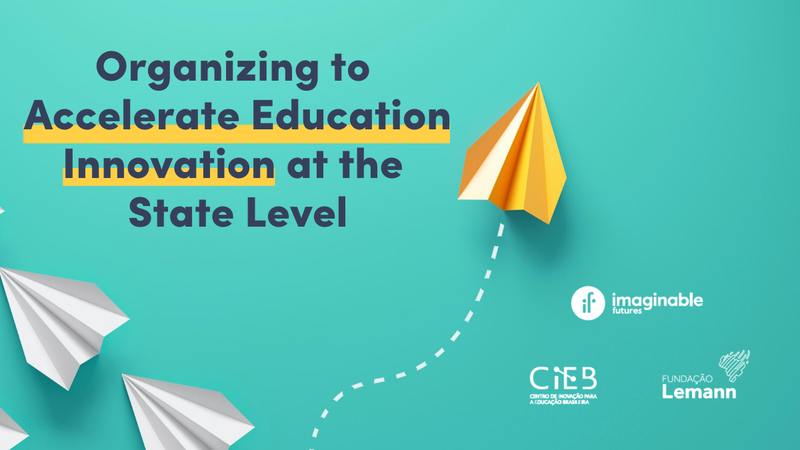Brazil’s Opportunity to Respond Creatively and Generatively to COVID-19

Countries across the globe are navigating the profound impact of the COVID-19 pandemic, including coping with its effects on the education and wellbeing of learners of all ages. In the education sector, educators, parents and students have been working to adapt to remote learning— a form of learning that isn’t new, but rather, has risen as a crucial player to help students continue learning as schools close due to the pandemic.
Like other geographies and countries, Brazil is still early in its education response. However, it is critical to distinguish sudden moves to a crisis-induced form of remote learning from deliberately planned initiatives and experiments leveraging technology to personalize learning and develop student mastery. Even before the pandemic began, Secretariats of Education in Brazil recognized the power of technology to solve teaching and learning challenges. Leadership for innovation, still nascent across most states, actively sought to develop the political, financial and organizational capacity to turn innovation and educational technology into impactful personalized and mastery-based learning opportunities for all of their students.
This kind of learning recognizes student needs, interests and variability, including that students are in different places socially and emotionally, and are in different places in their learning trajectories (they always were, yet it is now more pronounced). Teachers have less control over students’ time and attention, and there is an urgent need to create conditions that mitigate the need for remediation while motivating learning and shaping student agency.
It is clear that this unique moment in time presents a pathway to not only manage learning through the virus, but also to respond creatively and generatively to its impacts.
Partnership for Innovation
In 2019, Imaginable Futures, Lemann Foundation and Center for Innovation in Brazilian Education partnered with CONSED, an association of the Education Departments of the States and the Federal District in Brazil, to provide research on the experiences of a number of US states who have previously organized education departments— namely “offices of innovation”— to accelerate education innovation.
The resulting report, Organizing to Accelerate Education Innovation at the State Level, authored by Lisa Duty, a US expert on innovation and personalized learning, was intended to help launch and support conversations with an internal audience at CONSED. Upon delivery of the report, however, it was believed its publication would benefit all Brazilian innovators. We issue this report today with the addition of a pandemic-era preface in the hope that individuals can both learn from and enhance our collective understanding of how Brazil’s education systems can evolve, and how committed people everywhere can change children’s worlds for the better.
Learning From and Across Geographies: What Value Does this US-Based Study Offer to Brazil?
In the last decade, an increasing number of U.S. State Education Agencies (SEAs) including Rhode Island, Ohio and South Carolina have launched initiatives aimed at cultivating more innovative instructional methods and models that leverage education technology. Structurally, these state education systems have organized themselves in various ways to catalyze, fund, implement and oversee these complex initiatives, and require that SEAs themselves—as well as their related ecosystems— evolve over time. Just as most schools were not designed for innovation, neither are rule-oriented, compliance-based state education agencies that govern systems.
These state-level actors have stepped up to cultivate, organize or fund opportunities— helping schools shift from a focus on acquiring or “using edtech” in the classroom (mostly layering technology on top of the old model of school and supported with narrow teacher technology training) to immersing communities of educators in why and how technology can support entire instructional models with the potential to meet the needs of the fourth industrial revolution.
We commissioned this study because there is tremendous value in learning across and from different geographies. The case studies from US states can spark thinking about innovation, and have the potential to transform and accelerate student learning in Brazil. US states, while different from those of Brazil, offer ideas, inspiration and lessons learned. When taken as a stimulus for action and not a blueprint for replication, Brazilian Secretariats can potentially decrease the risks and costs of experimentation and increase the odds of their own success, while speeding innovation.
During COVID-19 pandemic, the focus of SEA has been to replicate the traditional model of education, still content-based, to an online form. Lisa Duty calls us to shift away from a more traditional model of education to one that is personalized, mastery-based and student-centered. The time is right. This is not because it is “innovative” in the buzz-worthy sense, but because it responds to the challenges of the current pandemic and will help us better serve the needs of all learners.
